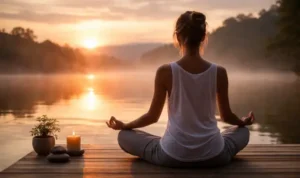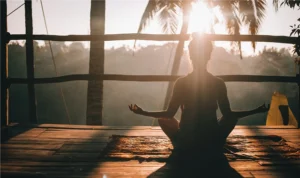In a world that moves fast, resting feels like rebellion rather than productive
We are often praised for how busy we are. We glorify hustle, measure our worth by our to-do lists, and chase productivity like it’s the only currency that matters. Maybe—just maybe—doing nothing isn’t lazy. Maybe it is one of the most nourishing and intentional things we can offer to ourselves. Rest is productive after all.
This post is not about laziness or escaping our many responsibility. It is about the art of rest, and the radical act of choosing slowness in a world that never stopped.
Why We Struggle to Rest
Rest does not come easy for many of us. When we sit still, our minds race. We feel guilty for not “using our time wisely”. We’ve been taught that values comes from output—how much we create, achieve or accomplish in a day.
So, we fill all the gaps with noises—podcasts while walking, checking emails during meals, multitasking our way into exhaustion. We fear the silence. We fear what we might hear from within.
But what if we stopped running from stillness? What if we just observe the thoughts that come by?
Resting is Not Wasting Time—Rest is productive
In mindfulness, “doing nothing” is an intentional pause. It is a break—perhaps a reset.
It is sitting quietly with a cup of tea.
It is lying on the couch, listening to rain or watching the cloud shifts without needing to name or capture the moment.
True rest is not about sleeping in or zoning out—it is about being present in your body without expectation.
Doing nothing allows your nervous system to regulate. It gives your thoughts time to breathe. It creates space for creativity, healing, and clarity to surface.
What Rest Looks Like (That You Might Be Overlooking)
Rest does not always mean napping or laying down. Here are subtle, overlooked forms for rest:
- Mental rest: Turning off notifications and letting your brain wander freely.
- Sensory rest: Sitting in silence or dim lighting after a day of overstimulation
- Creative rest: Stepping away from projects to refuel inspiration.
- Emotional rest: Saying not to things that drain your energy, even when it’s hard.
How to Practice Intentional and Productive Rest
Here are small yet could be powerful ways to invite stillness into your day without guilt:
- Schedule “unstructured time”. Block a half-hour with no agenda. Let the moment guide you.
- Unplug. Leave your phone in another room while you sit in stillness or take a slow walk.
- Do something slow and tactile. Brew tea, water your plants, fold laundry—slowly yet mindfully.
- Stare out the window. No podcasts, no phone. Just watch, let your thoughts meander.
- Let yourself be bored. Boredom can be the gateway to deep creativity and insight.
A Gentle Reminder
You don’t need to earn rest, or wait until you’re completely exhausted to deserve it. As a human being, you’re allowed to slow down—no justification required.
Doing nothing is not a weakness. It is a wise, conscious decision to honour your limits and come home to yourself.




